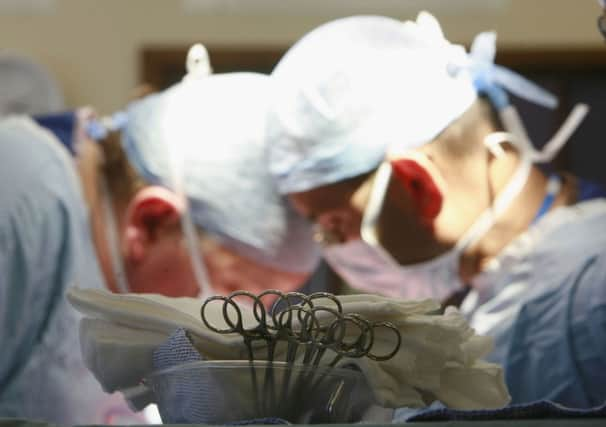24/7 NHS ‘doomed to fail without more cash’


Politicians in Scotland and other parts of the UK have outlined visions for increased availability of care in the evenings and weekends to improve services and boost the flow of patients through hospitals.
But the British Medical Association (BMA) conference heard concerns from doctors that current budgets would not be sufficient to deliver increased services and could affect the care given during the week.
Advertisement
Hide AdAdvertisement
Hide AdDr Nikki Thompson, chair of the BMA’s Scottish consultants committee, said the resources currently used to provide NHS services over five days should not be taken and spread thinly across seven days.
Earlier this year, Scottish health secretary Alex Neil set up an expert group in an effort to ensure the NHS in Scotland provides round-the-clock care whenever patients need it.
Mr Neil said it did not mean that hospitals would be expected to carry out routine operations in the evening at weekends, but instead would mean ensuring that a wider range of services – such as pharmacy, physiotherapy and portering –were on hand to help move patients through the system whatever the time or day of the week.
The move comes after international studies suggested higher mortality rates among patients admitted to hospital at weekends. Speaking after a debate on 24/7 working at the meeting in Harrogate, Dr Thompson said she hoped Scotland could develop an “appropriate” way of delivering round-the-clock access to urgent care.
But she said it would require more staff and resources. “What we are concerned about as a profession is making sure that our real focus is on the emergency and acute services”, she said.
“Any patient who urgently needs care should be able to receive that. If you’re hit by a bus at 2am on a Saturday morning, your care should be as good as if it happened on Monday lunchtime. A lot of our focus is making sure that our priority is the patients who need us most when they need us most.
“Another thing we have concerns about is making sure that we have the resource to do things properly. We can’t deliver really good, efficient emergency care 24 hours a day, seven days a week unless we have the resources available 24/7. That’s about having enough doctors, nursing staff, porters, cleaners, pharmacists and everybody.”
Dr Thompson said in “straitened financial times” resources had to be focused on what patients needed most.
Advertisement
Hide AdAdvertisement
Hide AdShe also pointed to big problems in recruiting and retaining staff, with consultant vacancy rates of 6.5 per cent in Scotland.
The anaesthetist said she hoped the Scottish taskforce on round-the-clock care, of which the BMA is a member, would consider the wider issues before pressing ahead with something that the NHS could not deliver.
“If we try to take five days worth of resources and spread that thinly across seven days, that is never going to be a good thing,” Dr Thompson said.
“So it needs to be looking at what does need to be provided seven days a week – the acute and urgent care – and making sure that is appropriately resourced seven days a week.”
A Scottish Government spokeswoman said: “Our health service already offers round-the-clock care in many areas, but we need to ensure this is consistent across Scotland and meets the clinical needs of patients.”